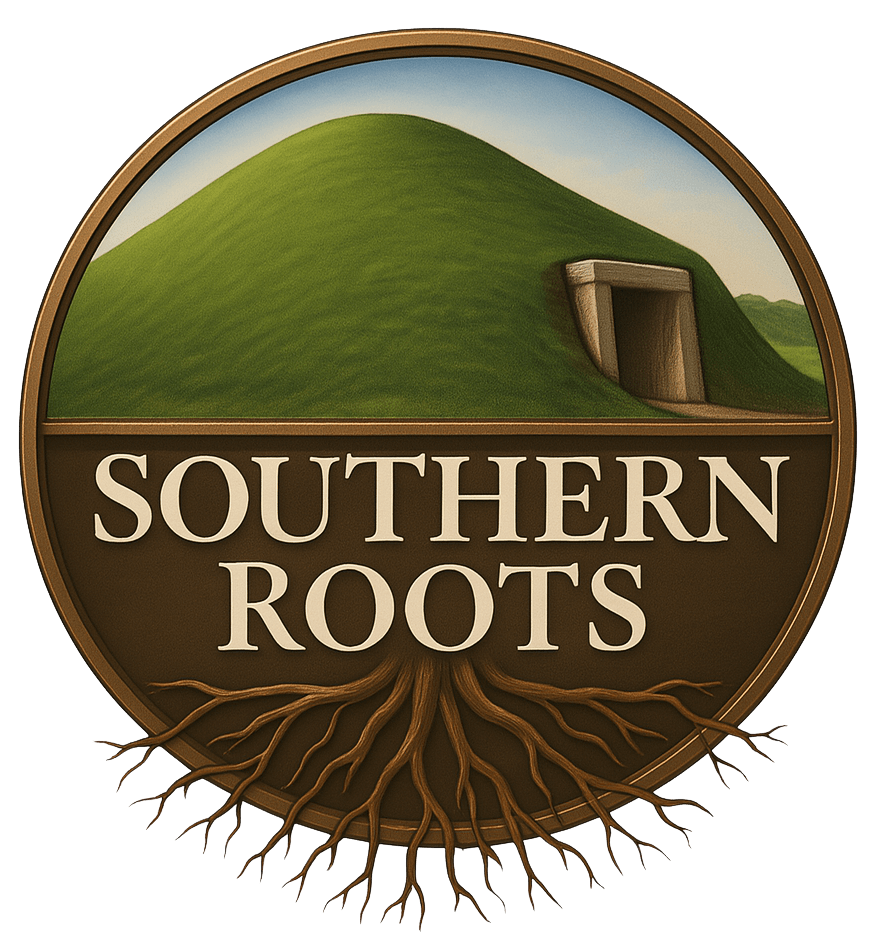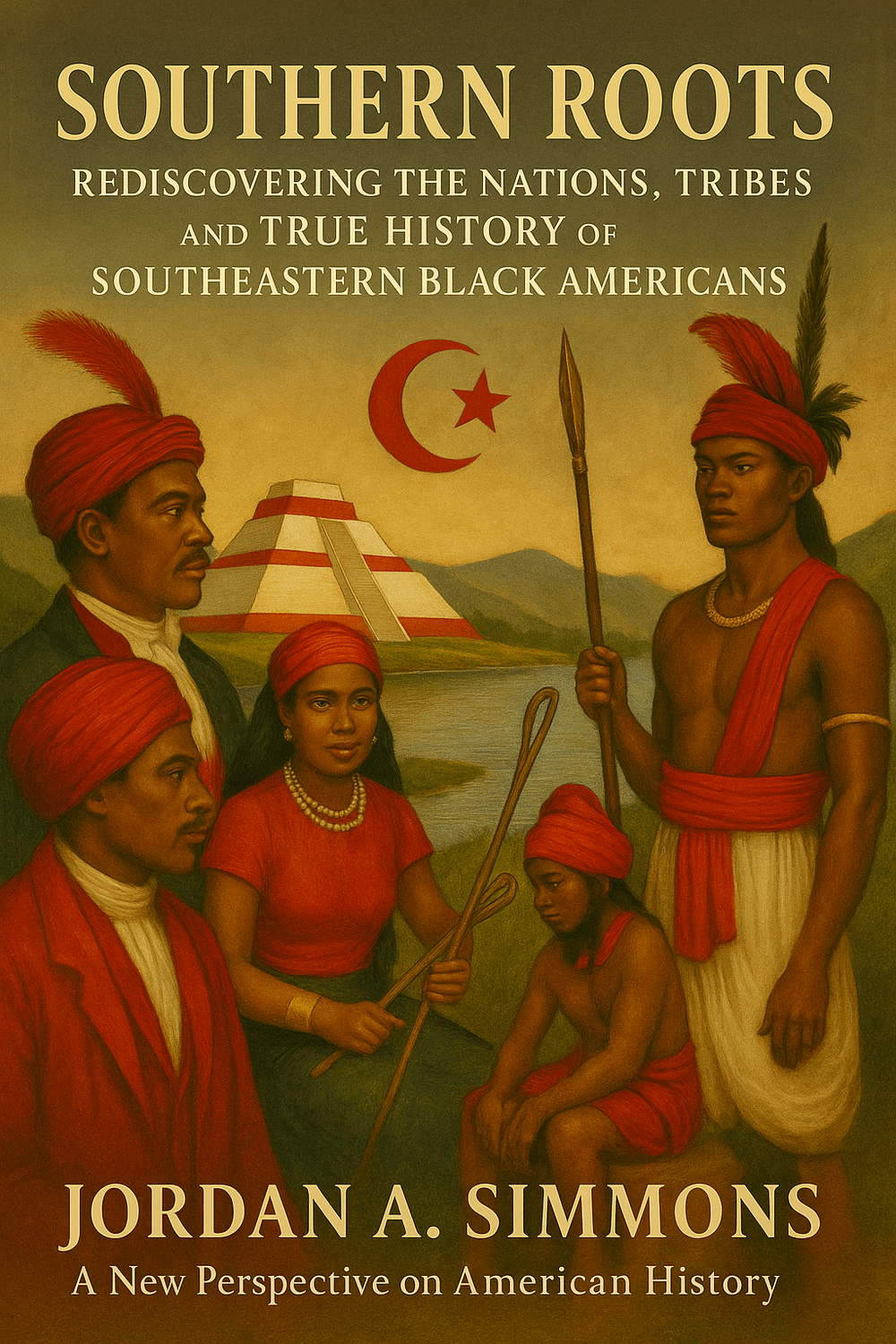The Names That Hid a Nation: What “Muscogee” and “Creek” Really Mean
How Colonial Naming Erased a Civilization and How Rediscovering It Can Help Black Americans Reclaim Their Roots
What If the Name That Hides You Was the Key to Finding Yourself?
We’ve been told to trace our history across the Atlantic—to Africa, to slavery, to the shores of an unfamiliar past. But what if the story we’ve been searching for was right beneath our feet, hidden in names we were never meant to understand? “Muscogee” and “Creek” aren’t just tribal designations. They are clues—coded markers in a larger story of American identity, erasure, and rebirth.
Apalachee, Kawita, and the People of One Fire
Before the word “Muscogee” ever existed, there was Apalachee. This was not just a town—it was a civilization. The Apalachee Confederacy governed the southeastern region of North America with a sacred fire, ceremonial law, and matrilineal town-based governance. That sacred fire was passed forward to Kawita, a town that inherited not just power, but purpose.
Albert Gatschet, an early ethnographer, described this confederacy not as a tribe, but as a network of sovereign towns bound together in a sacred covenant called the People of One Fire. This fire was not symbolic alone. It was legal, spiritual, and ancestral—renewed through ritual and carried town to town like a sacred inheritance.
By the mid-1700s, the sacred order was evolving. Moors from Europe, African traders, and Sephardic Jews entered into alliances, intermarriages, and sacred pacts with the southeastern people. What emerged was not a new tribe—but a new people. That is when the name Muscogee appears.
“Muscogee”: A Name of Sacred Synthesis
The term "Muscogee" (or "Maskoki") did not originate from a single tribe. Even Albert Gatschet admitted in his Migration Legends of the Creek Indians:
"None of the tribes are able to explain the name from their own language."
Some researchers suggest the name was not native at all, but borrowed from Algonquian or foreign origins. Others see something deeper: a Ladino (Judeo-Spanish) root. According to the Apalache Research Foundation, the word may have been coined by Malatchi Bemarin, a Creek High King of Sephardic descent.
He combined:
Masko (Ladino for "mixed")
-ki or -ge (a Muskogean and pre-Indo-European suffix for "people")
So Maskoki = "Mixed People"—a sacred designation for a spiritually bonded confederacy of original Americans, Moors from Europe, Africans, and Sephardic Jews.
This wasn’t a race. It was a covenant.
“Creek”: A Colonial Misnomer
If "Muscogee" emerged from within, the word Creek came from the outside.
According to historian Verner W. Crane in The Origin of the Name of the Creek Indians, British colonists invented the term in the late 1600s. Early references to the southeastern towns— "...such as "Cursitaws," "Cowataws and Cussetaws," "Ogamulgees, " "Ochese" - names often applied loosely to the whole group, rather than specifically to certain towns or subdivisions of the eastern Muskogee," were gradually collapsed into a single name:
"Ochese Creek Indians" (those living along the Ocmulgee River).
This term was eventually shortened to simply "Creeks". It was a geographic label—not a nation, not a language, not an identity. It erased the distinct names of Apalachee, Kasihta, Coweta, and others.
By the 1700s, colonial officials even referred to their allies as “the Upper and Lower Creeks,” turning a network of sovereign towns into a category.
What Malatchi Actually Said
High Chief Malatchi never referred to his people as “Muscogee” or “Creek.” In his discussions with British leaders like James Oglethorpe, he consistently used names like:
Apalachee
Palachicola
Kawita
These were not nicknames. They were national names.
Why It Matters to Black Americans Today
If you’re a Black American from the South, these names matter. Because many of us descend from these towns, from these fires, from these pacts.
Our people were reclassified.
From Kawita to “Creek”
From “Palachicola” to “Negro”
From national identity and self-rule to chattel slavery and erasure
The name "Black" became a tombstone where nations used to stand.
To rediscover the true meaning of "Muscogee" and "Creek" is to begin unburying that nation.
Let us know what you think in the comments!

